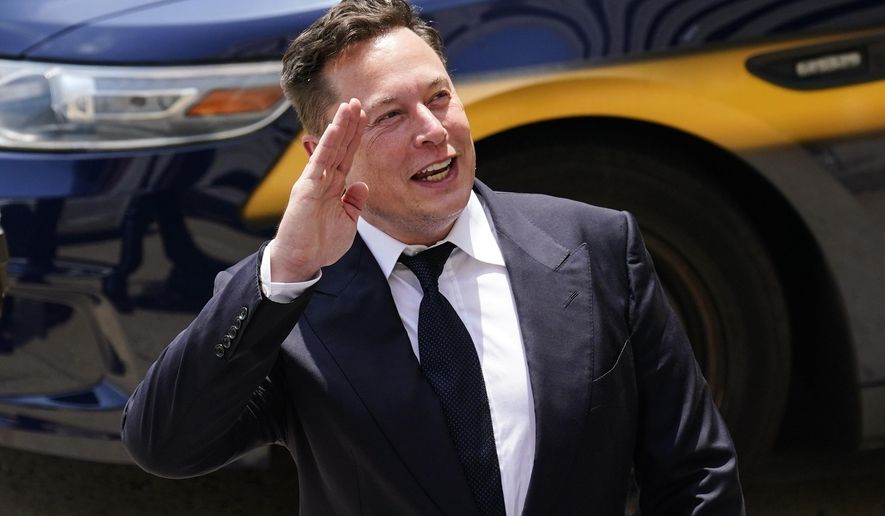President Biden’s $2 trillion social-spending package comes loaded with generous incentives for electric vehicles.
But Tesla CEO Elon Musk still isn’t a fan.
Mr. Musk said Congress should ditch the Build Back Better bill, now awaiting a vote in the Senate, arguing that its enhanced tax credits for electric cars are unnecessary.
“We don’t need the $7,500 tax credit. Honestly, I would just can this whole bill,” Mr. Musk said at this week’s Wall Street Journal CEO Council Summit. “Don’t pass it, that’s my recommendation.”
He turned up the criticism Wednesday, tweeting, “If ‘temporary’ provisions in the Build Back Better Act become permanent, US national debt will increase by 24%!”
.@elonmusk just UNLOADED on Biden’s bloated infrastructure bill, saying he “would just can the whole thing” and “delete” itpic.twitter.com/y6Plo77giK
— Benny (@bennyjohnson) December 7, 2021
His comments came with Senate Democrats seeking to pass Build Back Better before Christmas despite headwinds from Republicans and Sen. Joe Manchin III, West Virginia Democrat, who renewed Tuesday his desire for a “strategic pause.”
A day after Mr. Musk first knocked the bill, Transportation Secretary Pete Buttigieg swung back by insisting that the EV revolution needs a jump-start from the federal government for the transition to happen “quickly enough to meet our climate challenges.”
He said the federal assistance would also make the cars more affordable for average Americans, and that Build Back Better includes incentives for electric vehicles made in America with union labor.
“These are things that don’t happen on their own,” Mr. Buttigieg said at the same conference.
“They require policy attention, and that’s part of our focus both in the charging network that is supported out of the infrastructure bill that the president signed, and the tax credits that will make these vehicles more affordable, that are proposed in Build Back Better,” he said.
Build Back Better would raise the EV subsidy per car from $7,500 to $12,500, although $4,500 of that would be only for U.S.-built cars made by union labor. Another $500 would be contingent on whether the vehicle had an American battery.
Mr. Musk said that Tesla stopped receiving the $7,500 vehicle purchase tax credit about two years ago, and yet the company continues to dominate the EV market, producing about two-thirds of the electric cars sold in the U.S.
He called the $7.5 billion in the infrastructure bill signed last month to build a fleet of charging ports “unnecessary.”
“Do we need support for gas stations? We don’t,” Mr. Musk said. “There’s no need for this support for a charging network. I would delete it. Delete. I’m literally saying, get rid of all subsidies, but also for oil and gas.”
The world’s richest person, Mr. Musk has criticized the Biden administration’s pro-labor bent, saying at a conference in September that the White House “seems to be controlled by unions.”
Tesla’s workforce is not unionized.
• Valerie Richardson can be reached at vrichardson@washingtontimes.com.




Please read our comment policy before commenting.